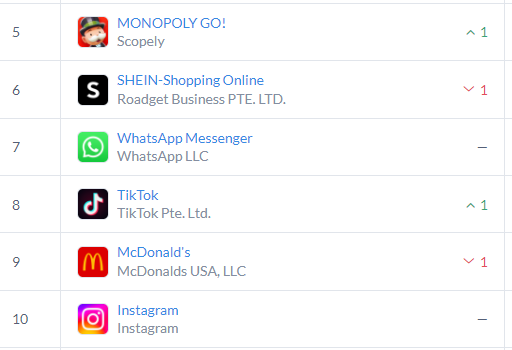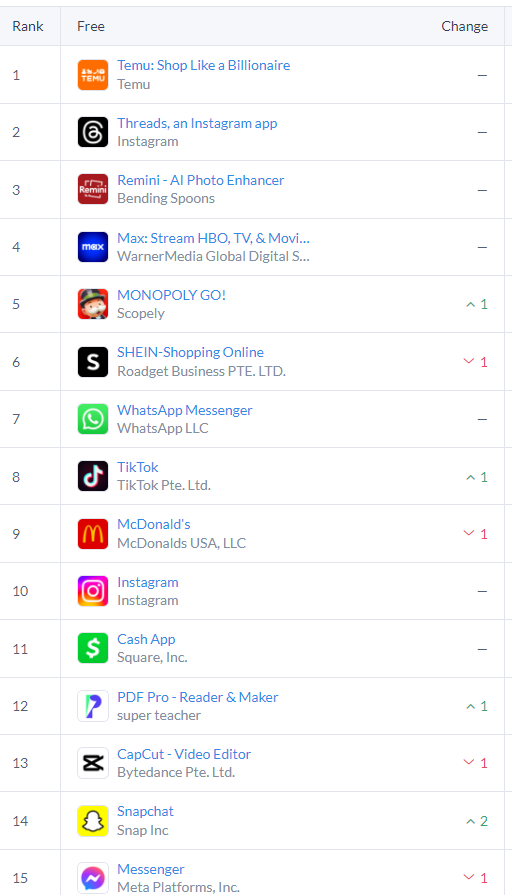Good Monday Morning
It’s September 11th. Google’s long awaited trial for anticompetitive behavior begins tomorrow. It’s the latest in a series of Big Tech trials that have previously targeted Microsoft, AT&T, and IBM.
Today’s Spotlight is 920 words — about 3 1/2 minutes to read.
3 Stories to Know
1. A federal judge has temporarily halted a new Arkansas law requiring parental consent for minors to create social media accounts. The injunction comes after tech trade group NetChoice, representing companies like TikTok and Meta, questioned the law’s constitutionality.
2. IBM plans to use AI to revamp programs written in COBOL, a programming language that’s over 60 years old but still crucial to many global systems. The tool aims to rewrite the code in modern programming languages since many COBOL practitioners are no longer in the workforce.
3. Google has launched its “Privacy Sandbox” feature in Chrome, which tracks users to generate ad topics for advertisers. It’s part of a digital future Google promised would not include tracking cookies. Despite widespread criticism, Google argues that this is a step toward a more private web. We’ll cover browser security in an upcoming Spotlight issue.

Spotlight on Car Data Privacy Dilemma
Data privacy concerns are growing in the automotive world. As cars become more connected and feature-rich, they also become fertile ground for data collection, raising alarms among privacy advocates.
The Extent of Data Collection
A recent report from Mozilla’s Privacy Not Included project reveals a startling lack of privacy and security standards across major car brands. These modern vehicles are not just modes of transportation; they are “data-harvesting machines” that collect sensitive personal information, from the obvious like location and driving habits to the more intimate like race, weight, and even sexual activity. Brands like BMW, Ford, Toyota, Tesla, and Subaru are among those gathering this extensive range of data.
Worth noting: sexual activity is often inferred from a combination of other data such as location, time spent in the car, and other sensor data, rather than being directly observed.
Nissan & BMW Singled Out
Nissan stands out as a particularly egregious offender. The company reserves the right to sell your data to third parties, including law enforcement agencies. This raises serious questions about consent and the potential for misuse of personal information.
BMW recently dropped its controversial subscription-based heated seats to refocus on selling software services. The company’s experiment with installing physical features that unlock with subscriptions rather than digital subscriptions was met with owner outrage. While this latest move was met with relief, it underscores the industry’s broader shift toward monetizing car features, often at the expense of user privacy.
Tesla’s Onboard Cameras Worry ACLU
The ACLU has raised concerns about Tesla’s in-car cameras that capture images inside the car, adding another layer of surveillance to their already extensive data collection.
In a move toward transparency, Forbes has introduced a groundbreaking tool called Vehicle Privacy Report. This tool aims to unveil the automotive industry’s secretive data collection practices and could be a game-changer in raising consumer awareness and pushing for more transparent policies. Think of it as a burgeoning Carfax for car data privacy concerns.
Practical AI
Quotable: “While some (including OpenAI) have released tools that purport to detect AI-generated content, none of these have proven to reliably distinguish between AI-generated and human-generated content.”
— Newly published FAQ section at ChatGPT parent OpenAI
ChatGPT Bot Blocked: 12% of the top 1,000 websites have blocked OpenAI’s GPTBot just two weeks after OpenAI released blocking guidelines. Major sites like Amazon and Quora are among those restricting access as are news sites CNN and The New York Times.
Tool of the Week: Facebook has launched a new tool for users to manage some of how their data is used in generative AI models. The tool allows users to access, correct, or delete their third-party information used for AI training.
Trends, Spends, & TikTok



Did That Really Happen — CashApp is Not Bankrupt
PolitiFact debunked a claim circulating on social media that falsely said CNN claimed that Cash App was filing for bankruptcy. The claim directed people to file their claims with a bankruptcy court.
Following Up — Meta Not Following Ad Policies
We wrote just before Labor Day about the free-for-all in some political digital advertising. Shortly after that, Wired published an expose about Meta failing to follow its rules regarding PragerU ads targeting children. Some ads were removed, but many remain.
Protip — Speed Up Your Android & iPhones
Revitalize your Android phone by clearing its browser cache and cookies. Learn the quick steps for Chrome, Samsung Internet, and Firefox to boost speed and enhance privacy. Go here if you have an iPhone.
Screening Room — Airport Dads Meet Uber Reserve
Science Fiction World — Telescopes Attacked
Two of the world’s most advanced telescopes, Gemini North in Hawaii and Gemini South in Chile, have been temporarily shut down due to cyberattacks. The nature and origin of the attacks are still under investigation.
Coffee Break — Rebranding Doritos & Twinkies as Health Food
Marketing guy Matt Rosenman has one of the year’s viral video series as he hilariously imagines rebranding food that is bad for us as health food. Watch a master marketer spin a pastry as good for you.
Sign of the Times











